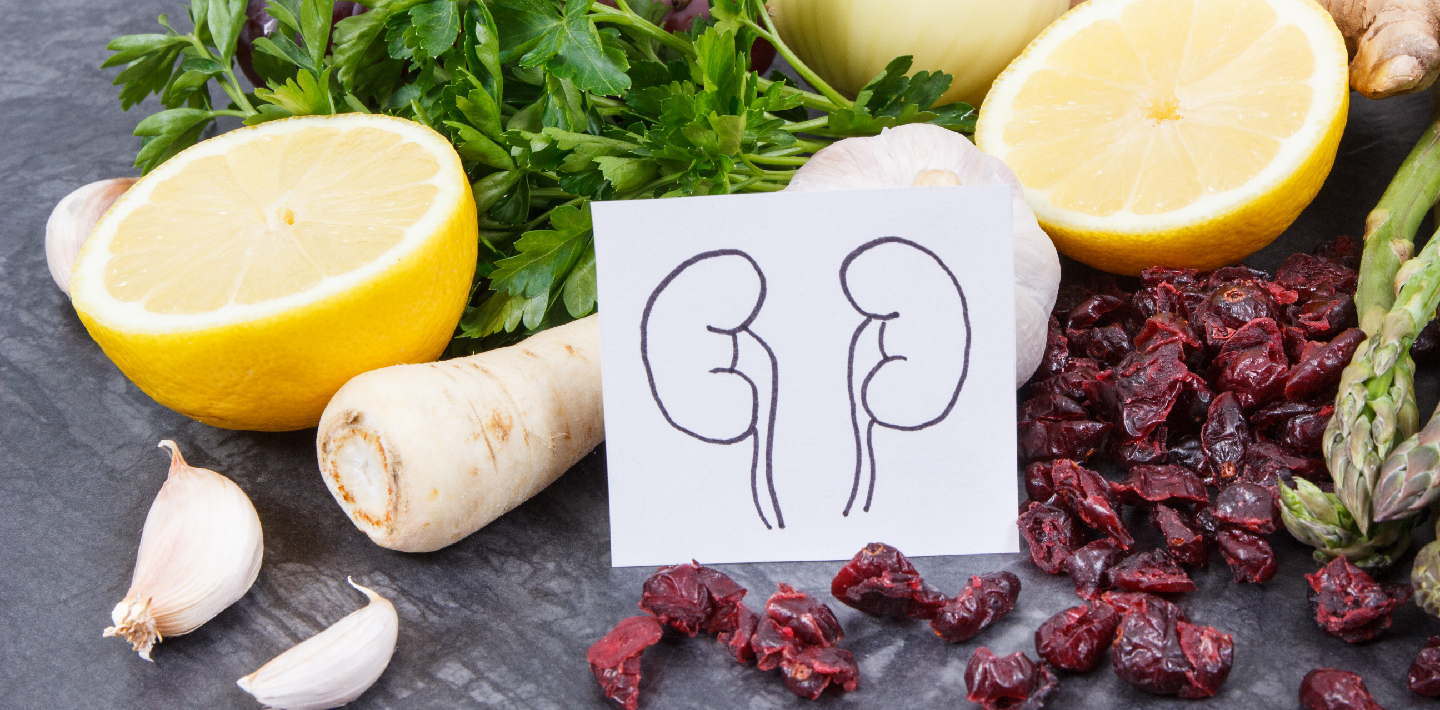Managing kidney disease involves more than medication and regular check-ups—it also requires important lifestyle changes, especially in diet. A kidney-friendly diet is essential for preserving kidney function, slowing disease progression, and ultimately enhancing quality of life.
If you or someone you know has kidney disease, understanding which foods to include and which to avoid can make a big difference in managing symptoms and supporting overall well-being.
This guide delves into the importance of dietary management, highlights kidney-friendly foods, and provides practical advice for crafting a balanced, sustainable meal plan.
The Link Between Kidney Health and Diet
Diet plays a crucial role in kidney health. The kidneys filter waste and excess fluids from the blood, balance electrolytes, and regulate blood pressure. With kidney disease, these processes become less efficient, resulting in a buildup of toxins in the body. Therefore, dietary choices are vital.
A kidney-friendly diet restricts certain nutrients—like sodium, potassium, and phosphorus—that can strain the kidneys. Instead, it emphasizes nutrient-rich foods that support overall health. This diet helps reduce waste production, prevent fluid retention, and protect kidney function over time.
What is a Kidney-Friendly Diet?
A kidney-friendly diet aims to support those with impaired kidney function by limiting or controlling specific nutrients such as sodium, potassium, phosphorus, and protein, which can burden the kidneys if consumed in excess. Here’s a closer look at these nutrients and their impact on kidney health:
- Sodium: Too much sodium can lead to fluid retention, increased blood pressure, and worsening kidney function. Limiting sodium intake helps prevent fluid buildup and reduces stress on the kidneys.
- Potassium: While essential for muscle and heart function, potassium can accumulate to dangerous levels when kidney function is compromised, potentially leading to heart issues. A kidney-friendly diet controls potassium by avoiding high-potassium foods.
- Phosphorus: Excess phosphorus can cause calcium loss from bones, weakening them over time. Damaged kidneys struggle to filter phosphorus, so limiting phosphorus-rich foods is necessary.
Protein: Although protein is vital, too much can overtax the kidneys. Moderating protein intake reduces waste production and helps maintain kidney function.
Essential Foods for a Kidney-Friendly Diet
Balancing foods that support kidney health without overwhelming the kidneys is key. A kidney-friendly diet incorporates low-sodium, low-potassium, and low-phosphorus foods, which support overall health and preserve kidney function.
- Low-Sodium Options: Sodium can cause fluid retention and high blood pressure, both of which are harmful to kidney health. Fresh fruits, vegetables, and herbs are great low-sodium alternatives.
- Fresh fruits and vegetables: Always choose fresh produce with no added sodium.
- Herbs and spices: Garlic, lemon, and fresh herbs like basil and parsley can be used to flavor dishes without salt.
- Antioxidant-Rich Foods: Antioxidants reduce inflammation and protect kidney cells from damage.
- Blueberries are rich in antioxidants and low in potassium, making them ideal for kidney health.
- Red bell peppers are low in potassium and high in vitamins A and C, so they are excellent for kidney health.
- Lean Protein Sources: Protein is essential, but moderation is crucial for kidney health.
- Chicken and fish are easier on the kidneys than red meat. To limit sodium, opt for skinless, unseasoned cuts.
Eggs: Low in phosphorus and versatile, eggs are a good protein source for kidney-friendly diets.
Foods to Avoid for Kidney Disease
While many foods can support kidney health, some should be limited or avoided due to high sodium, potassium, phosphorus, or protein content.
- High-Potassium Foods: While necessary for body functions, too much potassium can cause heart issues in those with kidney disease.
- Bananas, oranges, and avocados are high in potassium, so these fruits should be limited or avoided.
- Potatoes and sweet potatoes are high in potassium, but soaking them in water before cooking can reduce potassium levels.
- High-Phosphorus Foods: Excess phosphorus weakens bones by leaching calcium.
- Processed cheese and dark sodas: Both are high in phosphorus and should be avoided.
- Packaged snacks: These are often high in phosphorus-containing additives.
- Processed and Fast Foods: These foods are known for being high in sodium, phosphorus, and preservatives, which can harm kidney health.
- Frozen meals contain high sodium and preservatives that can strain kidney function.
- Fast food: Burgers and fries typically contain high sodium, making homemade meals healthier choices.
Creating a Sustainable Meal Plan for Kidney Disease
Building a balanced, kidney-friendly meal plan is crucial for managing kidney disease. While it may feel overwhelming, minor changes and planning can help you stick to your diet while enjoying various foods.
- Portion Control: Even kidney-friendly foods can cause problems if eaten in large quantities. Managing portion sizes helps regulate nutrients and prevents kidney strain.
- Simple Substitutions: Easy swaps can make transitioning to a kidney-friendly diet smoother.
- Swap potatoes for cauliflower to lower potassium.
- Use fresh ingredients instead of processed foods for reduced sodium and phosphorus.
Embracing a Kidney-Friendly Lifestyle
Managing kidney disease is a long-term commitment, but dietary changes can become manageable with the proper knowledge and guidance. By choosing kidney-friendly foods, controlling portions, and monitoring nutrient intake, you can protect your kidneys and improve your quality of life. Small adjustments, like reducing sodium intake and avoiding high-potassium foods, make a significant difference over time. Always consult with a healthcare provider or dietitian for personalized advice and support.

